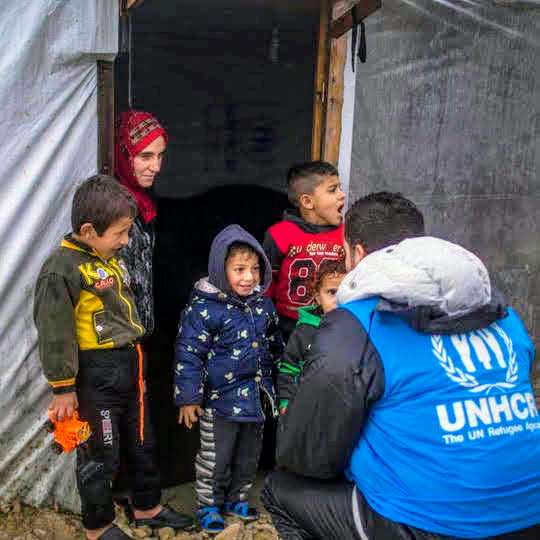Vulnerability Assessment Framework Population Survey for Refugees Living in Camps, 2022
Jordan, 2021
Get MicrodataIdentification
UNHCR_JOR_2022_VAF_CAMP_v2.1
Vulnerability Assessment Framework Population Survey for Refugees Living in Camps, 2022
| Name | Country code |
|---|---|
| Jordan | JOR |
The Vulnerability Assessment Framework (VAF) is a key tool used by humanitarian and development organizations in Jordan. It contributes to coherent vulnerability identification and programme delivery across sectors. . It was designed in 2014 with a focus on Syrian refugees residing outside of camps. This dataset collected between November and December 2021 presents the first efforts in expanding the scopes to the Zaatari and Azraq refugee camps.
Residents of both Azraq and Zaatari camps were randomly sampled to explore trends and vulnerabilities specific to the camp context. As the questionnaire was first used to collect the data in the urban setting, it was tailored for the refugee camps context to account for the camp residents’ living circumstances, allowing for a deeper understanding of this specific group. A total of 10,141 individuals, representing 2,208 families living in 1,620 households, were interviewed in person.
Sample survey data [ssd]
Household, Case (family), Individual
Version
v2.1: Edited, cleaned and anonymised data.
Scope
The scope includes:
- demographics
- protection,
- access to services,
- food security,
- livelihoods,
- financial situation
- impact of COVID-19
| Topic |
|---|
| Health |
| Livelihood and Social cohesion |
| Health and Nutrition |
| Food security |
| Water Sanitation Hygiene |
| Protection |
| Education |
| Cash Assistance |
| Income Generation |
| Basic Needs |
Coverage
Azraq and Zaatari camps
Producers and sponsors
| Name |
|---|
| UNHCR |
| MINDSET |
Sampling
In order to ensure that the sample is representative of the refugee population living in both camps, a stratified random sampling method was used, with two strata: Azraq and Zaatari. Random sampling aims to reduce selection bias and ensure that our respondents have the same characteristics as the entire population on average. A random sample of families was selected for each camp using UNHCR's ProGres registration database. This sample was then proportionally distributed across the villages in Azraq and districts in Zaatari. Even though sampling was conducted at the family unit, all members in the household were interviewed, including other cases/families living in the same household, and individuals pending registration with UNHCR
Weights were calculated at case level as the inverse of the probability of extraction.
Survey instrument
Questionnaire contained the following sections: Household Demographics, Shelter, WASH, Consumption and Expenditure6, COVID-19 KAP7, Financial Situation, Health, Education, Livelihoods, and Child Labour.
Data collection
| Start | End |
|---|---|
| 2021-10-07 | 2021-12-19 |
| Name |
|---|
| UNHCR |
| MINDSET |
UNHCR and Mindset jointly conducted face-to-face training sessions weeks for 29 female enumerators and 7 supervisors. In order to exercise all precautionary measures and social distancing, two batches of training took place over the course of two weeks. The training sessions provided comprehensive background information on the study and general guidelines on research ethics, behaviour protocols and COVID-19 precautionary measures. Moreover, the training provided a unified approach for fieldwork through the testing instructions after each session and the technical orientation of the Kobo data collection tool.
Data Access
UNHCR, MINDSET (2022). Jordan: Vulnerability Assessment Framework Population Survey for Refugees Living in Camps, 2022. Accessed from: https://microdata.unhcr.org
Contacts
| Name | Affiliation | |
|---|---|---|
| Curation team | UNHCR | microdata@unhcr.org |
Metadata production
UNHCR_JOR_2022_VAF_CAMP_v2.1
| Name |
|---|
| UNHCR |
2022-09-23
